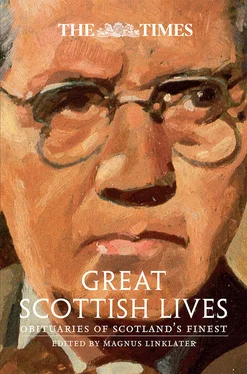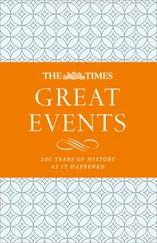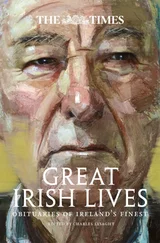It was on Sir John Sinclair’s suggestion, that in 1793 Mr. Pitt proposed in Parliament the issue of Exchequer-bills for the relief of the commercial interest, then labouring under great distress. How soon and how effectually credit was restored by that politic measure, all merchants old enough to recollect the crisis must willingly, and many of them gratefully, acknowledge. Nor was Sir John’s diligence in executing his plan inferior to his sagacity in devising it; much depended upon a large sum of money reaching Glasgow before a certain day; by applying every stimulus to all the agents he was enabled to accomplish this important object, contrary to the expectations of his most sanguine friends. Meeting the Prime Minister the same evening in the House of Commons, he began explaining to him his success, when Mr. Pitt interrupted him − ”No, no, you are too late for Glasgow; the money cannot go for two days.” − ”It is already gone,” was Sir John’s triumphant reply; “it went by the mail this afternoon.”
The gratitude of the Minister was in proportion to the magnitude of the service. He desired Sir John to specify some favour to be conferred upon him by the Crown. He requested the support of Government to his intended proposition for the establishment of “a Board of Agriculture.”
A spirit of enterprise and of invention was excited among the farming classes, and a dignity attached to agriculture which it never had before acquired. Agricultural associations suddenly sprung up on every side; reports were published, in 50 volumes octavo, describing accurately every county in the United Kingdom, and the substance of the information thus accumulated was digested, by Sir John himself, into his Code of Agriculture, a work which has now reached the fifth edition.
Among the labours undertaken by Sir John Sinclair, the most arduous, and perhaps the most successful, was The Statistical Account of Scotland. So little had the subject been at that time attended to, that the very term “statistics” was of his invention (see Walker’s Dictionary). The work was first commenced in 1790; it was prosecuted uninterruptedly for seven years, during which a correspondence was carried on with all the clergy of the church of Scotland, amounting nearly to 1,000; and it was brought successfully to completion by the gradual publication of 21 thick octavo volumes, in which a separate account is given of every parish in North Britain. Sir John made no attempt to derive even a partial compensation by the sale of his performance, for the immense expenditure he had incurred, but generously made over the whole work to the above mentioned body. A new edition, under their direction, is now in progress.
Along with his agricultural and statistical inquiries Sir John Sinclair from time to time exerted himself for the extension of the British fisheries. Having reason to believe that large quantities of herrings annually resorted to the coast of Caithness, he advanced a sum of money towards enabling certain enterprising individuals to decide the question. Their report was so favourable, that he prevailed upon the British Fishing Society to form a settlement in that county. The fishery thus established and encouraged has ever since continued rising in importance. It employs, on the coast of Caithness alone, about 14,000 individuals; it produces annually above 150,000 barrels of herrings; and being since extended to the neighbouring counties, has become the most productive fishery in Europe.
A tall athletic figure, in a military garb, his pretension to that costume was grounded on an important benefit to the public − that of raising, in 1794, a regiment of fencibles. Sir John’s first battalion, consisting of 600 men, served in England; and the second, 1,000 strong, in Ireland. The latter corps furnished above 200 volunteers for the expedition to Egypt.
Among the measures recommended by Sir John Sinclair in Parliament, he always himself attached peculiar value to the grant for forming bridges, roads, and harbours throughout Scotland. To his other public services may be added that he originated and long presided over the Society for the Improvement of British Wool, and introduced, at his own risk, into the north of Scotland, the Cheviot breed of sheep, of which so many millions have, in consequence, pastured on our Highland hills; lastly, that he suggested in the House of Commons the appointment of a committee on the famines in the Highlands, and by prevailing on them to wave the want of precedent, and grant relief without delay, he was the means of saving thousands from starvation.
The value of the various services above enumerated has been acknowledged from all quarters by the most competent judges. King George III honoured him with friendly notice and correspondence conferred upon him the dignity of a privy councillor, and is understood to have intended for him further marks of Royal favour. Various agricultural associations presented him with pieces of plate. Out of 33 counties in Scotland no less than 25 voted him their thanks. The magistrates of Thurso, the town adjoining his own residence, publicly and gratefully acknowledged “that amidst other pursuits of a more extensive tendency, the improvement of his native county had been the peculiar object of his care and attention;” and the freeholders of Caithness passed resolutions thanking him for having brought to a completion measures “which laid a solid foundation for the future prosperity of the county.”
His funeral took place within the chapel of Holyrood Palace, on the 30th of December, and although it was the wish of the family that the ceremony should be strictly private, yet the Lord Provost, magistrates, and Town Council, in their robes, and a deputation from the Highland Society of Scotland, of which Sir John was a distinguished member, solicited permission to join the procession on its entering the precincts of the palace, an unexpected tribute of respect which the friends of the deceased, we believe, did not decline, and which strongly marks the feeling which his loss has occasioned in the metropolis of Scotland. Sir John is succeeded in his title and estates by Sir George Sinclair, the present member for Caithness.
Sir Charles Napier, G.C.B.
‘Few officers have seen more service or suffered more from the casualties of war’
30 August 1853
We regret to announce the death of this distinguished soldier, whose services, spread over a period of half a century, have shed no small lustre on the British arms. The melancholy event took place at his seat at Oaklands, near Portsmouth, yesterday morning, at 10 o’clock. We understand he had been suffering severely from illness for some time past, and death was therefore not unexpected by his friends.
Few officers have seen more hard service, or suffered more from the casualties of war, than Sir Charles Napier. He was literally covered with wounds, and his hairbreadth escapes amid dangers from which he never shrunk would require a volume to enumerate. Sir Charles entered the army as an ensign in January, 1794, and was a lieutenant in May of the same year. In 1803 he became captain, and in 1806 acquired the rank of major; was a lieutenant-colonel in 1811, colonel in 1825, a major-general in 1837, and a lieutenant-general in 1846. He was also colonel of the 221 Regiment of Foot. The following is a brief list of the more important services in which he was engaged: –
In 1798 he was engaged in the suppression of the Irish rebellion, and again in putting down the insurrection of 1803. In the Peninsula he commanded the 50th throughout the campaign, terminating with the battle of Corunna, and was made prisoner after receiving no fewer than five wounds, viz, leg broken by a musket shot, a sabre cut to the head, wound in the back with a bayonet, ribs broken by a cannon shot, and several severe contusions from the buttend of a musket.
Читать дальше












